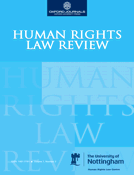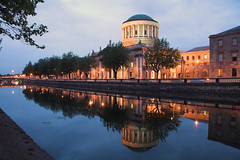Globalisation alla Berlusconi: libel suits in many jurisdictions
.jpg) Here we go again with yet another case of a head of state seeking to use the courts to curb uncomfortable press coverage. It is a popular tactic the world over – Charlie Haughey infamously relied on threats of libel action to stifle investigation of his private and financial affairs – and it is a game to which Silvio Berlusconi seems to devote himself with some alacrity, both at home and abroad. It gives a whole new meaning to globalisation. His latest forays are summarized by the TimesOnline (with added links):
Here we go again with yet another case of a head of state seeking to use the courts to curb uncomfortable press coverage. It is a popular tactic the world over – Charlie Haughey infamously relied on threats of libel action to stifle investigation of his private and financial affairs – and it is a game to which Silvio Berlusconi seems to devote himself with some alacrity, both at home and abroad. It gives a whole new meaning to globalisation. His latest forays are summarized by the TimesOnline (with added links):
…Umberto Eco leads writers’ revolt against Silvio Berlusconi’s attempt to gag press
Richard Owen in Rome
Italy’s artistic and intellectual elite was in open revolt yesterday against Silvio Berlusconi’s moves to sue at least three newspapers at home and abroad. More than 120,000 people have signed an online petition defending press freedom.
Umberto Eco, perhaps the country’s leading writer, Dario Fo, the playwright, and Roberto Saviano, author of Gomorrah, the bestseller about the Naples Mafia, were among those signing the petition, started by La Repubblica. The paper is being sued for questioning the Prime Minister’s behaviour and private life.
Mr Eco said: “When someone has to intervene to defend freedom of the press it means that the society, and with it a great part of the press itself, is already sick.”





